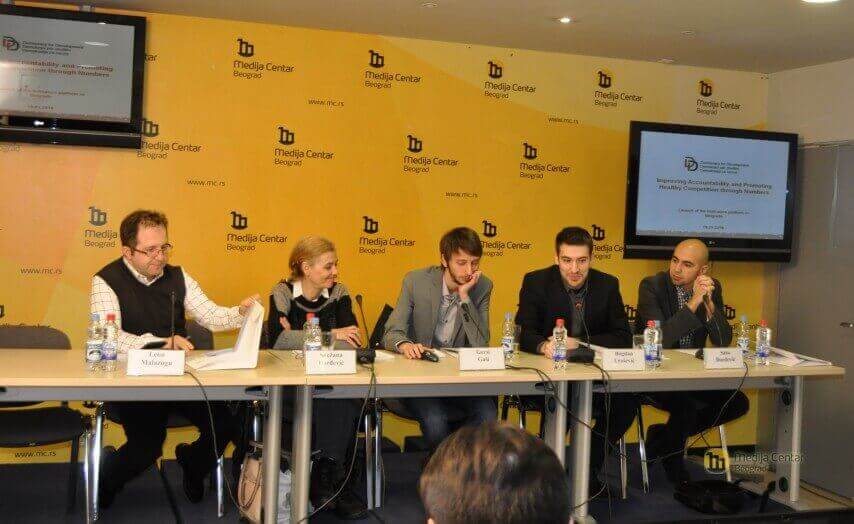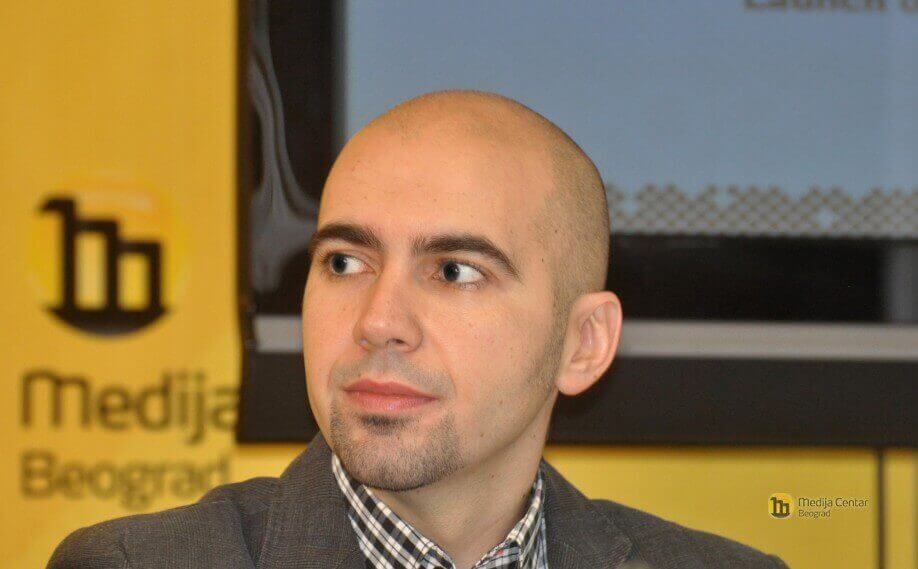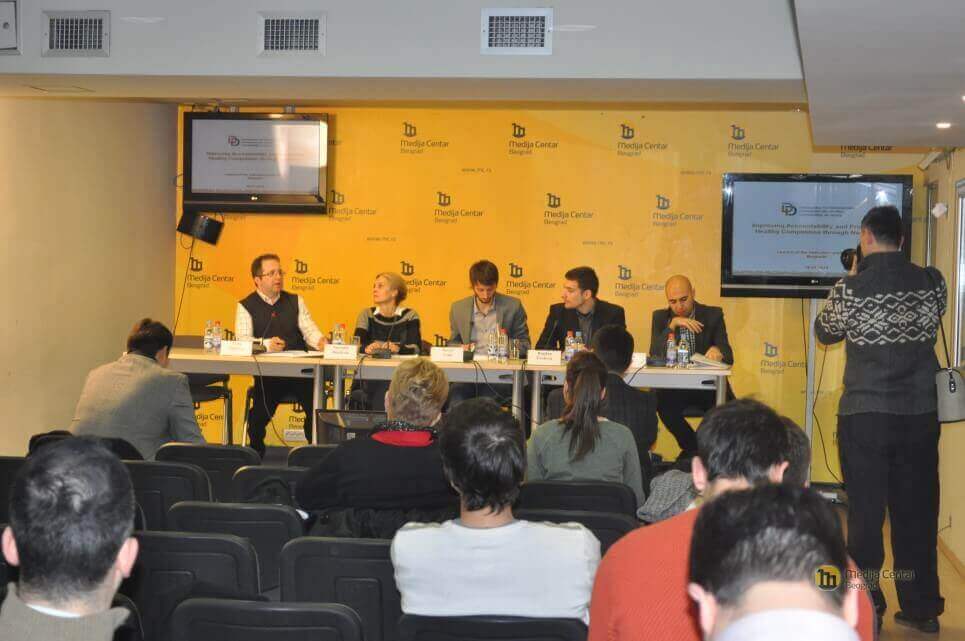Representatives of Belgrade Fund for Political Excellence and Democracy for Development Institute presented the results of their past year’s work at the launch event for the Regional Indicators Platform for Serbia, which was held on Friday, 19 January, at the Media Center, Belgrade.
Representatives of Kosovo Liaison Office in Belgrade, University of Belgrade and other higher education institutions, numerous foundations, international organizations, as well as Serbian institutes, think tanks and NGOs attended the launch event. Several media covered the event. In addition, two interviews were taken prior to the panel discussion – interview with Leon Malazogu by Fonet and interview with Bogdan Urošević by Tanjug.

Panelists presented the overall goal and idea behind the project – instigating the competition among countries in the Western Balkans, and improving the performance of public authorities through the use of the platform. The points that raised the utmost attention at the launch event include the capacity of platform for improving the accountability of public authorities, as well as an inherent research and informative potential that the aggregated indicators possess. After the initial five speeches and presentations, floor has been opened to the audience. Participants of the event from both sides of the podium agreed that the platform has the potential to become an useful tool for different users – decision makers and civil servants, civil society, the media, academia and other learning institutions, but also for the ordinary citizens interested in issues of public importance. Positive influence of the platform on the civil society organizations and improvement in the status of information rights to which it can contribute was also emphasized during the discussion. The discussion was concluded after lasting just under two hours.
Leon Malazogu, Executive Director of the Democracy for Development Institute stated that the main idea of the project was to get the empirical – numerical and statistical data in the same categories for each of the Western Balkans countries.
Such data would form an excellent basis for comparison, so it would enable the users of the platform to see who has good results and who is falling behind, and in what fields is this happening, adds Malazogu.
He also indicated that the platform remains work in progress as well as that providing its sustainability remains future challenge for its developers.

Gersi Gashi, Project Manager at Democracy for Development Institute explained in detail the techniques and ways of using the Regional Indicators Platform. Gashi outlined the research process as well as the structure of the platform and its four main categories – economy, governance, rule of law and security and social development. He pointed out the importance of feasibility of access and providing the proper sources for the data. The platform can provide solid basis for further research and data gathering, believes Gashi.
Bogdan Urošević, Program Assistant at Belgrade Fund for Political Excellence sees perspective for using the platform as a tool for improvement of accountability and transparency of administration, and for becoming adaptable for the use by interested citizens. Urošević provided several examples of how in his opinion the indicators platform can be useful and indicative, all on the examples of data for Serbia. He also states that adding different countries into the analysis widens the analytical view, giving deeper insight to professionals and citizens alike.
Snežana Đorđević, Full Professor at University of Belgrade, Faculty of Political Studies stated that such platforms are invaluable for students and academic community,
since the Western Balkans region is, according to her opinion in serious lacking of the systematized statistical data that could provide a solid learning and research basis.
Professor Đorđević pointed out that platform such as this could have multiple ways of developing. For her, one of those ways is collection of municipal and local data and constructive comparison between various regions within each of the countries.

Saša Đorđević, researcher at Belgrade Center for Security Policy believes that the civil society and citizens, as well as decision makers have great need for this kind of project. Đorđević states that the real opperational field for the platform are social networks, and that citizens should have the means to provide their own expectations, which should be directly incorporated into the platform. Researcher praised the selection of categories as being the proper representative categories for developing countries.
The Regional Indicators Platform Launch event in Belgrade succeeded in raising awareness of the platforms existence, its overall and specific goals, as well as its content. Although the turnout of public officials on the event was not great, the news, links and information regarding the platform reached even the bodies of Government of Republic of Serbia, and was covered by various media. Furthermore, large number of grass root organizations, foundations, institutes and think tanks learned about the platform, and the University representatives were even interested in holding the small promotion events of the platform at their faculties.
Indicators that were discussed during the launch and which benefited from the insight the most include all freedom index indicators, indicators in the parliament section of governance category, airport departures indicator, indicators from police and security sections, and especially, the press freedom and media-related indicators in general.













